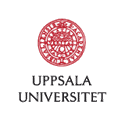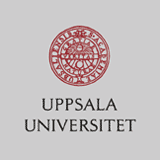Cardiovascular Psychology, 7,5 hp
| Kursnummer | CP |
| År | 2024 |
| Typ | Subjectcourse |
| Spår | - |
| Max antal deltagare | 30 |
| Sista ansökningsdag | 2024-08-30 |
| Språk | En |
| Kursansvarig | Erik Olsson |
| Institution | Institutionen för Kvinnors och barns hälsa |
| Besöksadress | |
| Postadress | |
| Datum | 2024-09-30 - 2024-11-03 |
| Lokal | |
| Kurslängd | 10 weeks |
| Kursrapport | |
| Kursplan |
Inlärningsmål
Knowledge and understanding:
After the course the students should be able to:
explain the influence of the autonomic nervous system on the cardiovascular system and how it is reflected in heart rate variability,
explain theories that describe the mutual relationship between cardiovascular disease and psychological factors,
describe psychological methods for behaviour change and to improve psychological wellbeing that can be used with people with cardiovascular disease.
Skills and abilities:
After the course the students should be able to:
discuss behaviour change theories and behaviour change techniques of relevance to people with cardiovascular disease,
perform a basic behavioural analysis and apply methods to influence motivation and behavioural change in people with cardiovascular disease
discuss inequalities in health care that affect people with cardiovascular disease, and ways to reduce these inequalities.
Judgement and approach:
After the course the students should be able to:
critically review scientific articles dealing with psychological interventions for people with cardiovascular disease,
demonstrate an empathic and accepting conversational approach that can enhance motivation.
Innehåll
The course aims at increasing knowledge about the psychosocial aspects of cardiovascular disease. The course content will cover causes of mental illness in cardiovascular disease and psychological treatments in this setting. Risk factor management is a major challenge for both primary and secondary prevention and it is, to a large extent, behavioural. Several models for how behaviour can be influenced will be discussed during the course. Some cardiac conditions have special behavioural challenges which will also be discussed in the course. Finally, inequalities when it comes to cardiac risk factors and cardiac rehabilitation, e.g. due to sex, socioeconomic status and mental health, will be covered in this course.
This course is a free-standing course that could also be elective for the physician, psychologist and physiotherapist programmes. The course can also serve as supplementary training for professionals in medicine, caring science, public health, physiotherapy and psychology.
The course is part of the European university network ENLIGHT's course catalogue.
Undervisning
Outline for distance course: The course is delivered online via the platforms Zoom, Studium and regular e-mail. The course includes two to three hours of lectures at two to four times per week with mandatory presence. There is also a mandatory group work with two supervisor sessions. Communication between student and teachers will be done online via the platforms mentioned above. In order to participate in this distance course you need access to a computer with a web-browser and a strong enough internet connection for the purpose. The computer must have a camera (internal or external) and a headset with microphone and earphones attached to it. Camera, microphone and earphones must be used at each synchronous session. Examination consists of a written assignment (online), participation in mandatory seminars and a group task. The instructions for the examining activities will be displayed on Studium.
Examination
Students are assessed through a written exam and a group project work where they search material on the use of psychological interventions for people with cardiovascular disease and present their result orally and in writing. In addition, active participation in mandatory seminars is required.
If there are special reasons, the examiner may make exceptions to the specified examination method and allow a student to be examined in a different way. An example of special reasons might be a certificate regarding special pedagogical support from the University's disability coordinator.
Lärare
Erik Olsson


